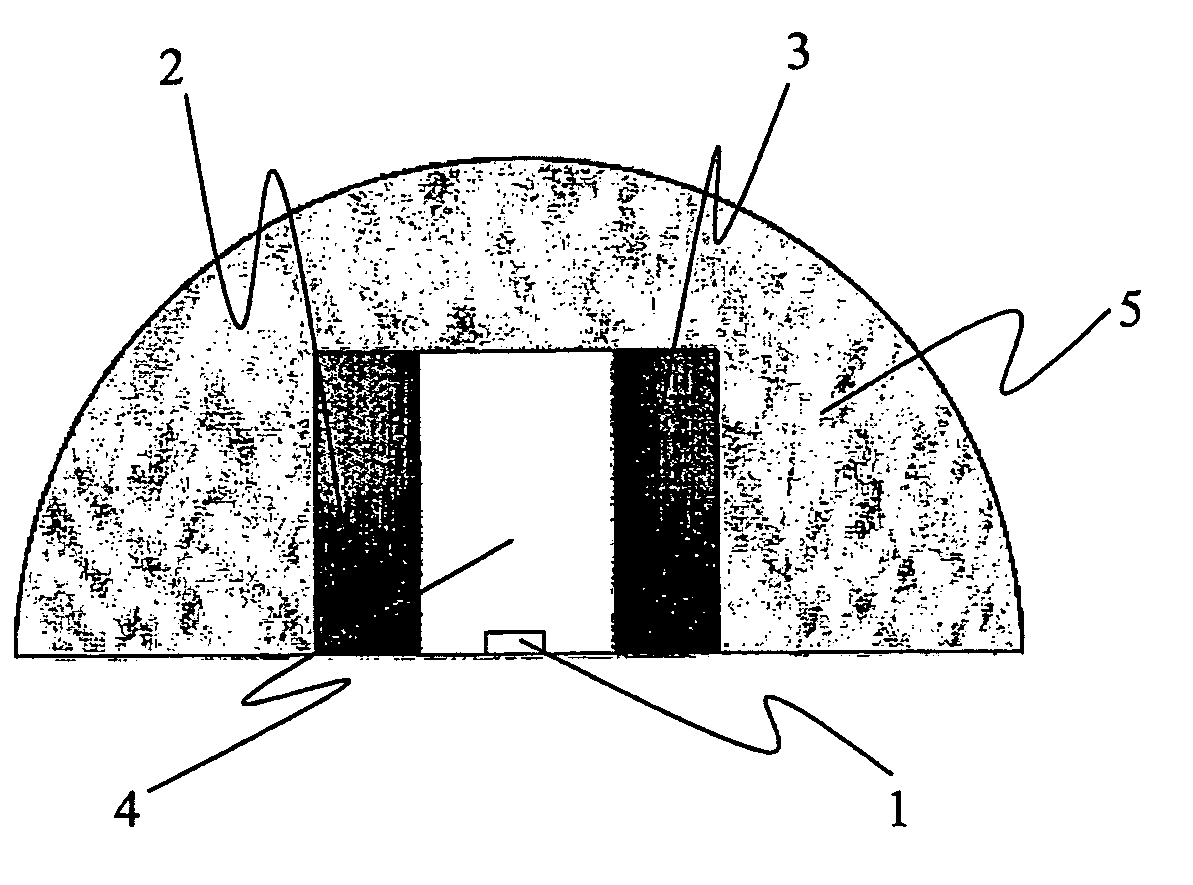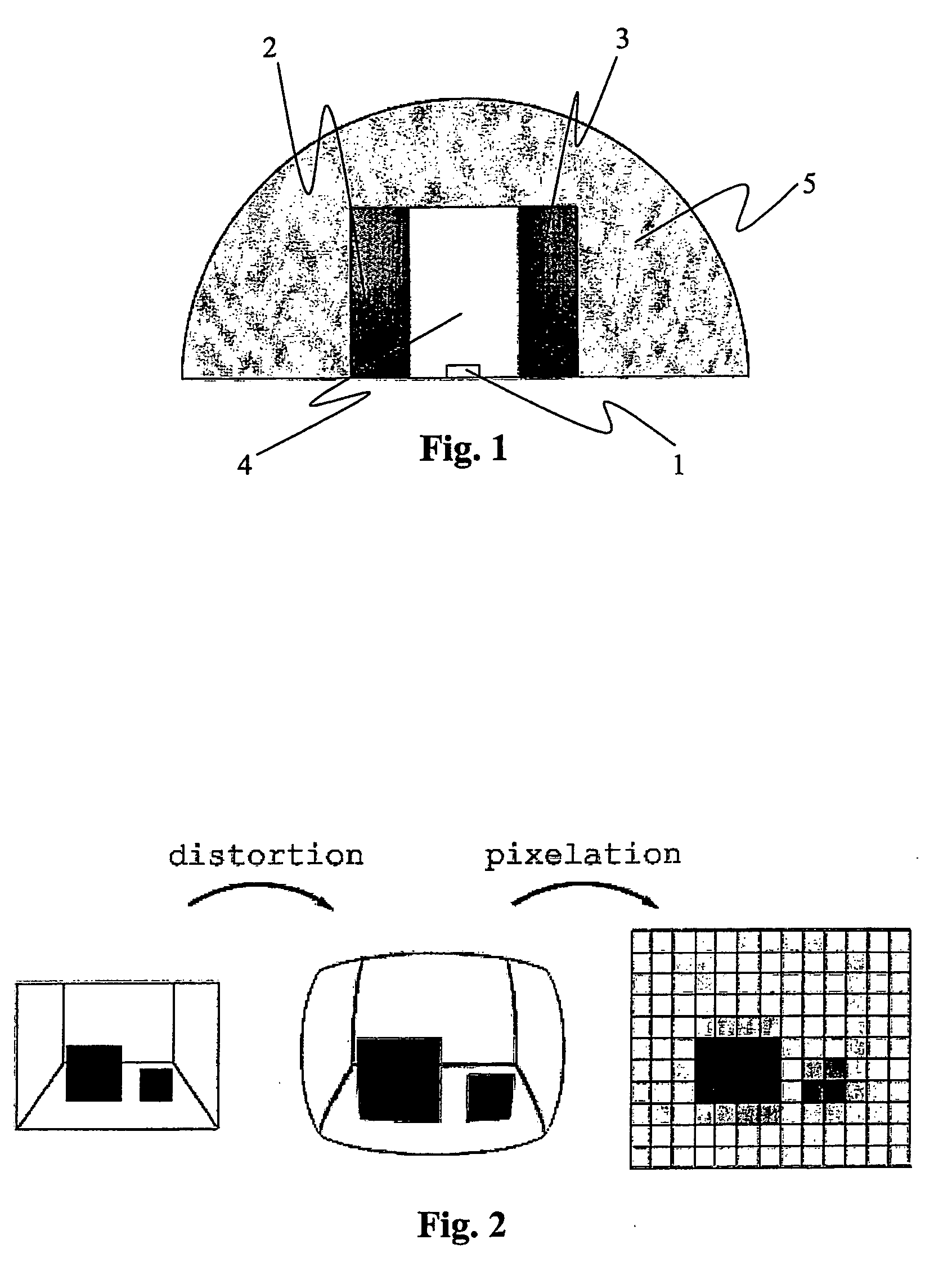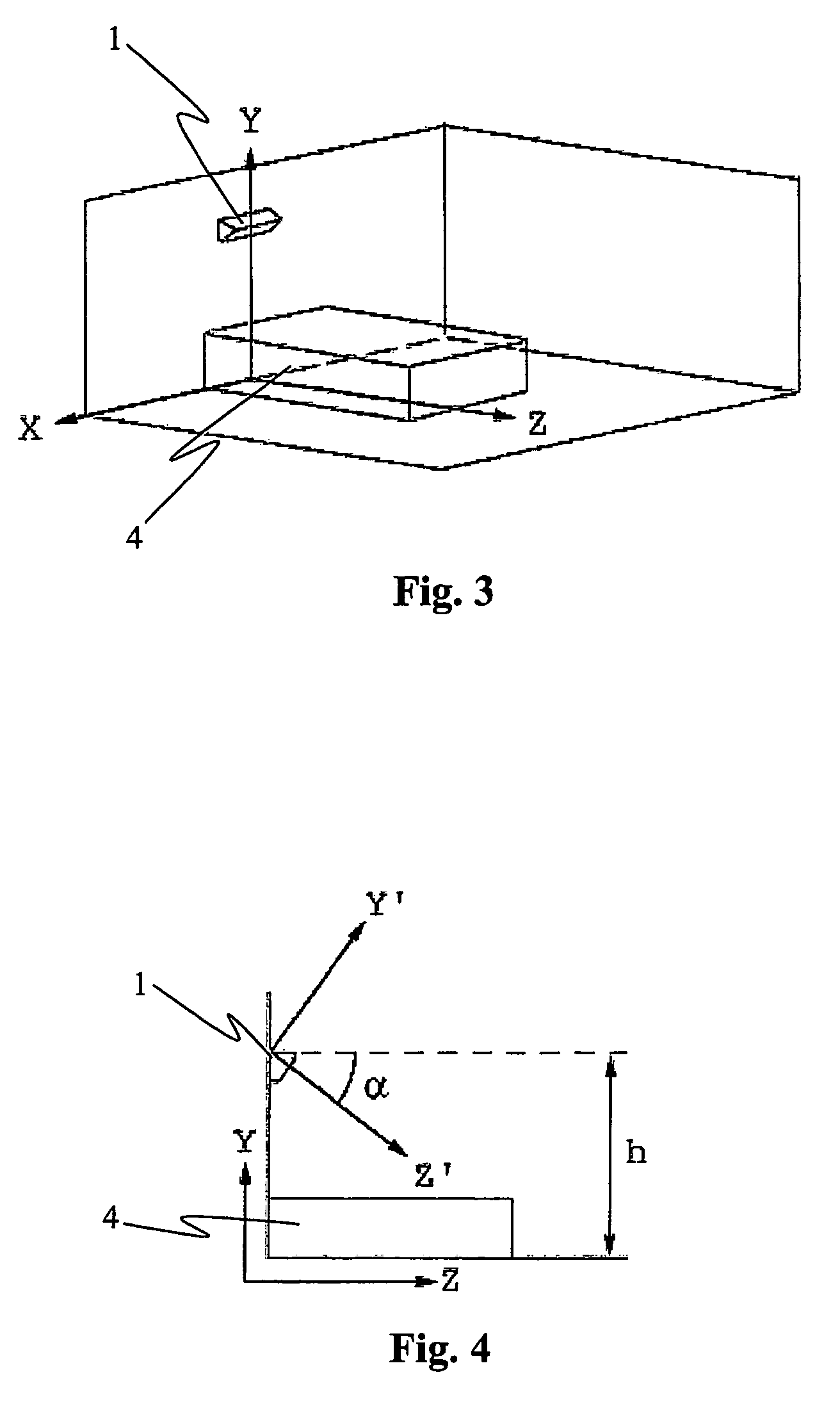Method and device for fall prevention and detection
- Summary
- Abstract
- Description
- Claims
- Application Information
AI Technical Summary
Benefits of technology
Problems solved by technology
Method used
Image
Examples
first embodiment
[0123] The fall detection algorithms MassCentre and PreviousImage show a noisy pattern. They may return many false alarms if they were to be run all the time, since shadows, sudden light changes and false objects fool the algorithms. To reduce the number of false alarms, the Fall algorithms are not run continually, but rather at times when one or more of the Floor algorithms (On Floor, Angle and Apparent Length) indicates that the person is on the floor. Another feature reducing the number of false alarms is to wait a short time before sending an alarm after a fall has occurred. Thus, the fall detection may be postponed until one or more of the Floor algorithms has detected a person on the floor for more than 30 seconds. With this approach the number of false alarms are reduced significantly.
[0124] The first embodiment is divided into five states, “No Person state”, “Trigger state”, “detection state”, “Countdown state” and “Alarm state”. A state space model of the first embodiment ...
second embodiment
[0133] As already stated above, it may be desirable to issue an alarm on detection of an upright condition, to thereby prevent a future possible fall. Below, the algorithm(s) used for such detection is referred to as a BedStand process.
[0134] Evidently, the above-identified Floor algorithms may also be use to identify an upright condition of an object, for example a person sitting up in the bed or leaving the bed to end up standing beside it. A person could be classified as standing if its apparent length exceeds a predetermined height value, e.g. 2 or 3 meters, and / or if the angle of the person with respect to the vertical room direction is less than a predetermined angle value, e.g. 10 or 20 degrees. The determination of an upright condition could also be conditioned upon the location of the person within the monitored floor area (see FIG. 1), e.g. by the person's feet being within a predetermined zone dedicated to detection of a standing condition. A further condition may be giv...
PUM
 Login to View More
Login to View More Abstract
Description
Claims
Application Information
 Login to View More
Login to View More - R&D
- Intellectual Property
- Life Sciences
- Materials
- Tech Scout
- Unparalleled Data Quality
- Higher Quality Content
- 60% Fewer Hallucinations
Browse by: Latest US Patents, China's latest patents, Technical Efficacy Thesaurus, Application Domain, Technology Topic, Popular Technical Reports.
© 2025 PatSnap. All rights reserved.Legal|Privacy policy|Modern Slavery Act Transparency Statement|Sitemap|About US| Contact US: help@patsnap.com



